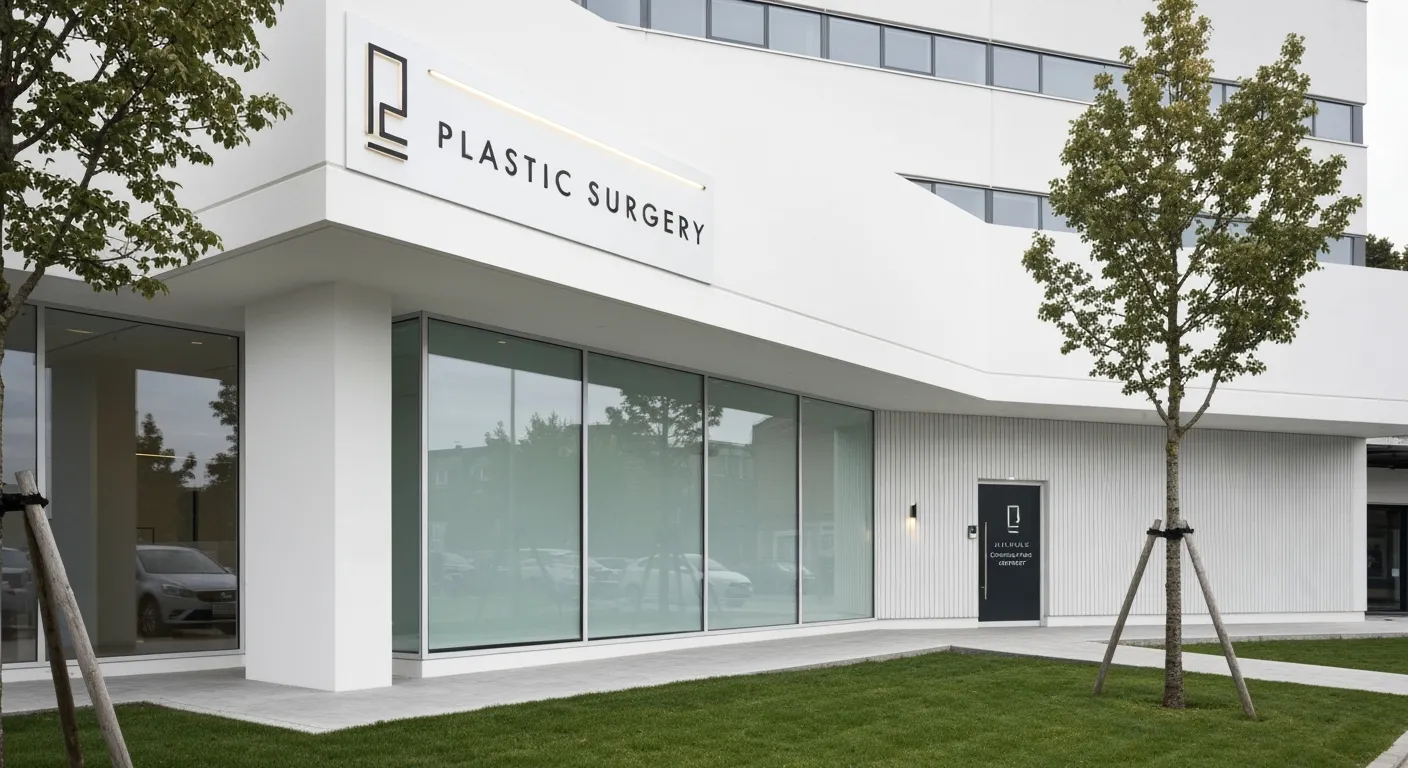
February 15, 2026
What Is Sculptra Treatment A Guide to Rebuilding Your Natural Collagen
What is Sculptra treatment? Explore how this unique collagen stimulator works to gradually restore facial volume for natural, long-lasting rejuvenation.
Oct 24, 2025

Choosing a plastic surgeon involves more than just selecting a skilled doctor; it requires understanding the rigorous qualifications that distinguish board-certified plastic surgeons from others. This article delves into what board certification entails, why it is an essential marker of expertise, and how it directly impacts patient safety and surgical outcomes.

Board-certified plastic surgeons complete about sixteen years of education following high school. This path includes medical school and a highly specialized surgical training program lasting at least six to eight years. Their residency training is accredited through programs in the U.S. or Canada, with typically three or more years devoted exclusively to plastic surgery after potentially starting with general surgery training (Residency Training Requirements for Plastic Surgery, Board-certified plastic surgeons training, Board certification for plastic surgeons).
Achieving board certification requires passing challenging written and oral exams administered by the American Board of Plastic Surgery (ABPS). These examinations test the surgeon’s extensive knowledge, surgical skills, ethical standards, and approach to patient care. To maintain their certification, surgeons must undergo retesting every three years and complete full recertification every ten years (ABPS Certification, Board certification requirements, Board-certified plastic surgeons).
Continuing medical education (CME) plays a vital role in sustaining board certification. Plastic surgeons are expected to complete annual CME credits—ranging typically from 10 to 50 hours—to keep abreast of the latest surgical techniques, safety advances, and innovative treatments within the field (Continuing Medical Education and Recertification, Ongoing education for plastic surgeons).
Plastic surgery training is comprehensive, covering both reconstructive and cosmetic procedures with extensive residency programs emphasizing a broad surgical skill set. Conversely, cosmetic surgeons may only complete shorter fellowship programs focusing solely on aesthetic surgery. The ABPS, recognized by the American Board of Medical Specialties (ABMS), certifies surgeons who have undergone this rigorous and broad training, unlike some cosmetic surgery boards that have less stringent requirements (Differences Between Plastic Surgery and Cosmetic Surgery, Board Certified Cosmetic Surgeons, Why a Board Certified Cosmetic Surgeon Isn't a Plastic Surgeon).
The ABPS establishes and upholds high professional and ethical standards for plastic surgeons. As the sole ABMS-recognized board certifying plastic surgery specialists, it ensures that certified surgeons are thoroughly trained across the full scope of reconstructive and cosmetic surgery, enhancing patient safety and surgical outcomes (About ABPS, Role and Standards of ABPS, Importance of Board Certification).

Board-certified plastic surgeons undergo rigorous, accredited training, including 6-8 years of residency focused on both reconstructive and cosmetic procedures. They must pass demanding written and oral exams administered by the American Board of Plastic Surgery (ABPS), a member of the American Board of Medical Specialties (ABMS). In contrast, cosmetic surgeons may complete shorter fellowships or training unrelated to plastic surgery, such as the 1-2 year fellowships required by the American Board of Cosmetic Surgery (ABCS), which do not carry ABMS recognition. This training discrepancy means plastic surgeons have broader expertise in managing complex cases. See more on the differences between plastic surgery and cosmetic surgery.
Certification from boards like the ABCS often involves fewer required procedures (minimum 300 cosmetic surgeries) and shorter fellowship durations compared to plastic surgery residencies. Moreover, ABCS certifications may not mandate continuing education or comprehensive residency in plastic surgery, leading to potential gaps in training and experience. The Medical Board of California and other authorities affirm that ABCS certification is not equivalent to ABMS-recognized plastic surgery certification, highlighting the importance of understanding these differences.
Patients should confirm a surgeon’s credentials through official channels like the ABPS website or the American Society of Plastic Surgeons (ASPS) 'Find a Surgeon' tool. These platforms list surgeons certified by ABPS, ensuring they meet high training and ethical standards. Beyond certification, verifying that the surgeon maintains hospital privileges and operates in accredited surgical facilities further assures quality and safety (see more.
Board-certified plastic surgeons usually hold privileges at hospitals—an endorsement of their expertise and compliance with safety protocols. Performing surgeries in accredited facilities certified by organizations such as the AAAASF, Joint Commission, or similar ensures that the surgical environment meets strict safety and quality standards. This reduces risks before, during, and after surgical procedures, enhancing patient protection (more details here).
Choosing a board-certified plastic surgeon means selecting a professional whose qualifications, training, and ethical standards have been thoroughly vetted, ensuring safer outcomes and a higher level of care (learn why board certification matters).

Board-certified plastic surgeons are extensively trained to perform a wide array of procedures. These include reconstructive surgeries such as correcting birth defects (e.g., cleft lip and palate), treating trauma injuries, cancer reconstructions, and burn care. They also specialize in cosmetic surgeries designed to enhance appearance, including facelifts, breast augmentations, liposuction, tummy tucks, and mommy makeovers.
Reconstructive surgery primarily aims to restore both function and appearance affected by medical conditions or physical trauma. These procedures are often medically necessary and may be covered by insurance. Cosmetic surgery, conversely, focuses on elective aesthetic enhancements intended to improve appearance and is generally not covered by insurance. For more details, see the explanation of differences between plastic surgery and cosmetic surgery.
Board-certified plastic surgeons employ advanced techniques such as microsurgery, skin grafts, tissue expansion, and flap surgeries. Subspecialties include craniofacial surgery, hand surgery, burn surgery, and reconstructive microsurgery, which allow surgeons to address complex defects and delicate repairs with precision. These skills are part of the comprehensive training and certification process for plastic surgeons.
Board-certified plastic surgeons uphold rigorous ethical standards prioritizing patient safety and transparent communication. They adhere to a strict code of ethics that ensures honesty about surgical risks and realistic results. Continuous education and recertification requirements help these surgeons stay current with evolving surgical techniques and safety protocols, ensuring that patient care meets the highest professional standards. This commitment is emphasized by the American Board of Plastic Surgery certification process.

Studies consistently show that surgeries performed by board-certified plastic surgeons result in fewer complications and overall improved outcomes. This is largely because these surgeons undergo rigorous training and comprehensive examinations that prepare them to handle complex cases and potential complications effectively.
Board-certified plastic surgeons operate in accredited surgical centers or hospitals, which adhere to strict safety protocols and guidelines. They possess hospital privileges, a hallmark of recognized expertise and safety standards. These surgeons are thoroughly trained in managing emergencies and surgical complications and adhere to a strict code of ethics focused on patient well-being.
Continuing education is a mandatory part of maintaining board certification. It ensures that surgeons stay informed about the latest advancements, safety measures, and technically improved procedures. This commitment to ongoing learning translates directly into safer surgical techniques and outcomes, as well as more natural and satisfactory results for patients.
Board certification acts as a verified credential that assures patients of a surgeon's specialized training, proficiency, and ethical standards. Knowing their surgeon is certified provides patients with increased confidence and trust when undergoing potentially life-changing surgical procedures, fostering a stronger patient-surgeon relationship.
| Aspect | Description | Benefit |
|---|---|---|
| Training & Exams | Rigorous education with written and oral exams | Fewer complications, better outcomes |
| Safety Protocols | Operation in accredited facilities with hospital privileges | Enhanced patient safety |
| Continuing Education | Mandatory ongoing learning and recertification | Updated techniques, improved patient care |
| Ethical Standards | Adherence to strict code of ethics | Trust and transparency |

Patients should begin by checking the American Board of Plastic Surgery (ABPS) website, which offers a reliable certification verification tool. Additionally, the American Society of Plastic Surgeons (ASPS) provides a 'Find a Surgeon' directory for credential confirmation. It's important to verify if the surgeon holds hospital privileges, as this ensures recognized expertise and adherence to safety standards. Reviewing the surgeon’s official website for clear listings of their certifications is helpful. Also, ensure that the surgical facility where the operation will take place is accredited by agencies like AAAASF or The Joint Commission.
Prospective patients should inquire about the surgeon’s training background and confirm if they are board-certified by the ABPS. Asking about their years of experience performing the specific procedure of interest and the surgeon’s complication and revision rates can provide insight into their expertise. Confirming whether the surgeon has hospital privileges is crucial for safety reasons. Also, discuss where the surgery will be performed and verify that the facility meets strict accreditation standards.
Knowing the difference between ABPS certification and other cosmetic surgery boards is essential. ABPS certification requires years of comprehensive surgical training, including rigorous written and oral exams focused on reconstructive and cosmetic surgery. Other certificates, such as from the American Board of Cosmetic Surgery, often involve less training and stricter recertification standards, which may affect surgical safety and outcomes. Understanding these distinctions helps patients choose surgeons with the most thorough and validated qualifications.
Memberships in reputable organizations like the ASPS indicate adherence to a strict code of ethics and high standards of practice. These memberships add credibility and ensure the surgeon is committed to ongoing education, patient safety, and professionalism. Surgeons in such associations are regularly evaluated to maintain quality care standards, offering patients additional confidence in their choice.
Selecting a board-certified plastic surgeon is a critical decision that significantly influences surgical safety, outcomes, and patient satisfaction. The extensive training, rigorous examinations, ongoing education, and adherence to ethical standards embodied by board-certified plastic surgeons distinguish them in a field often confused by varying titles and certifications. Patients are empowered to seek verified credentials, ask informed questions, and choose surgeons who operate within accredited environments to ensure the highest level of care. Ultimately, entrusting one's surgical care to a board-certified plastic surgeon means relying on a practitioner committed to excellence, safety, and lifelong learning — key pillars driving successful plastic surgery experiences.

February 15, 2026
What is Sculptra treatment? Explore how this unique collagen stimulator works to gradually restore facial volume for natural, long-lasting rejuvenation.

February 14, 2026
Learn how to tighten facial skin naturally with proven skincare, exercises, and diet. Our guide offers actionable tips for achieving firmer, more youthful skin.

February 13, 2026
Considering Kybella for under chin fat? Learn how it works, what to expect, costs, and if you're a candidate in our complete guide to jawline contouring.